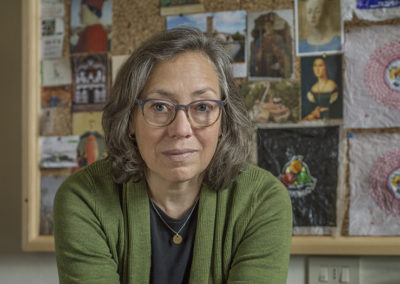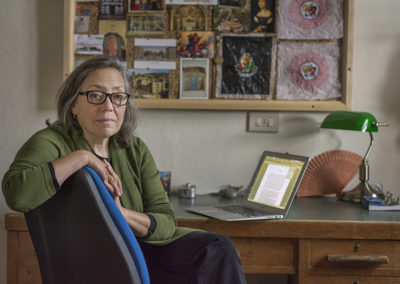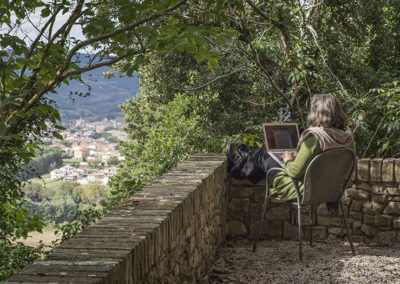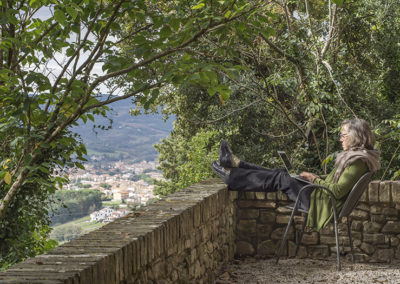Excerpt from Balaclava (a work in progress):
Tessa pulled into visitor parking area D, the closest to her father’s apartment that allowed her to bypass by the main hall reception desk. She hurried through the metallic cold to the elevator and pressed a button for the third floor. His front door was unlocked, as usual, and she found him sitting on the edge of his bed. He was in his underwear, a t-shirt and billowy boxer shorts, both white, and there were coins, pocketknives, Post-it notes and pens in a loose pile beside his right thigh.
“Whatcha doin?” she asked, skipping hellos as was her father’s fashion. The man had never been one to waste time or effort. When anyone commented on the trait, he would claim that it was his modus operandi from the very beginning, from having been a breech baby. “I had to come into the world feet first,” he’d explain, “so I could hit the ground running.”
Aside from dispensing with pleasantries, he possessed a cache of platitudes, original and borrowed, that he used to punctuate life, even after the stroke. All had to do with getting to the heart of a matter without delay and with personal agency privileged. The challenge is in the moment, the time is always now…. The moving finger writes, and having writ, moves on…. I am the master of my fate, the captain of my soul.
Before the stroke, which took away neither speech nor movement, but instead robbed him of the ability to complete tasks, the finisher unable to finish, Tessa’s father would have been waiting for her, baseball capped and fishing vested, sitting on the chair closest to the door. Better still, he’d be three floors down, standing outside the elevator at the head of the parking lot turnaround. Tessa would pull up in her hatchback and keep the motor running while he folded himself into the small car.
“’We’re burnin’ daylight,’” he’d have said as he wriggled the metal tongue of the seatbelt into its buckle. “Go get ’em, T.”
On this wintry weekend day, with lower temperatures and more snow than Philadelphians had seen since the blizzard of 1996, he looked up from the regurgitated pocket contents on his bed with a neutral expression, then turned his head to the left, where two identical pairs of khakis lay at the mattress’s edge, their legs dangling toward the floor.
“Switching pants, Dad?” Tessa asked. He nodded. She took a pair into each hand and held them in front of him. “Which?”
“The smaller ones,” he said. She looked at the labels. They were the same size.
“Got ‘em,” she said, putting one back onto the bed and unzipping the fly of the other.
She helped him dress and then piloted him downstairs in his travel wheelchair, the lightweight one she could collapse and hoist into. Although clothing now hung off him like an unstuffed scarecrow, he still had a large frame, and so getting him into the car made Tessa think of origami. While he gripped her arm and reached for the dashboard, exertion escaped his lips in small white puffs of frozen air. A few months earlier, when their father shuffled out of the examination room to be weighed, the oncologist told Tessa and her brother that the repeated declarations of feeling no pain were statistically impossible.
“No one has that much bone involvement without pain,” she had said. So Tessa tried not to rush him into the car, even though her own fingers, not yet gloved, had started to go numb. She stood close enough to put her free hand between his head and the door frame, in case he were to lose his grip on her other arm, but she left him to lower himself down as far as he could before plopping into the shotgun seat from a height of several inches. At the moment of impact, she saw his face pinch before resetting itself to blankness.



